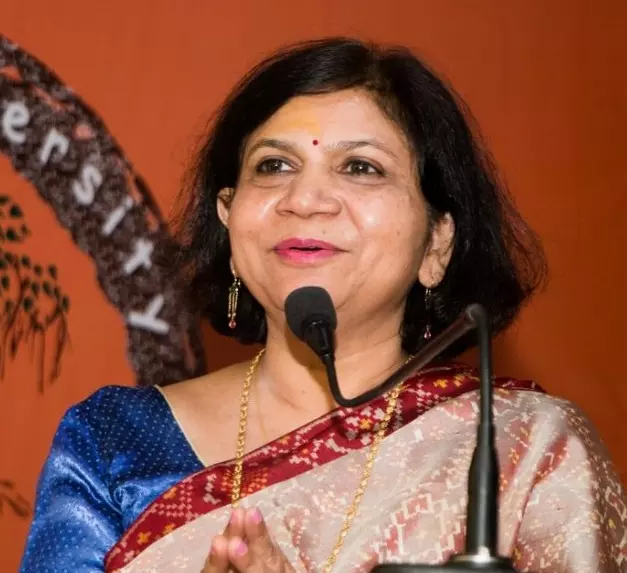
VC blames lack of cultural sensitivity in foreign students for attack on namaz-offering students
text_fieldsInstead of overtly condemning the Right Wing students for attacking the foreign students for offering night prayers in the hostel, Dr Neerja Gupta, the Vice-Chancellor of Gujarat University, attributed the incident to a lack of cultural sensitivity in the foreign students.
In an interview with The Indian Express, Neerja Gupta downplayed the attack, arguing that it was not solely the act of offering namaz inside the hostel that triggered it, but rather a culmination of incidents where foreign students failed to assimilate socially and culturally, ultimately leading to the attack.
She pointed out the food habits of foreign students in a predominantly vegetarian society like Gujarat as one of the reasons for the attack.
Foreign students, Gupta suggested, should be better mentored to understand the local customs and sentiments. Issues such as the disposal of non-vegetarian leftovers and interactions with street dogs were cited as potential triggers for friction in public spaces shared by everyone.
"It's not just about one incident," Gupta remarked, "We need to mentor them in better ways and educate them about the local society, customs, and prevalent emotions so that they can remain safe."
Addressing the broader context of the clash, Gupta stressed the necessity for dialogue and understanding. She highlighted the significance of foreign students as cultural ambassadors who carry the essence of Gujarat to the world.
One of the key concerns highlighted was the absence of a structured orientation program for foreign students, which used to include handbooks detailing local customs and practices. Gupta expressed a desire to reinstate such practices to bridge the gap between expectations and reality for foreign students.
In addition to orientation sessions and language guides, interactions between foreign and local students, community gatherings, and celebrations of cultural festivals were cited as effective measures to foster understanding and integration.
However, Gupta noted that some of these initiatives had been discontinued in recent years, leading to a growing disconnect between foreign and local students.
Moving forward, efforts are underway to revitalize support systems and cultural integration programs at Gujarat University. Gupta emphasized the importance of reinstating orientation practices and fostering ongoing dialogue between students and faculty to address concerns and promote inclusivity.
In response to the incident, counselling and psychological support services are being provided to affected students, with a focus on addressing trauma and facilitating a sense of belonging within the university community.























